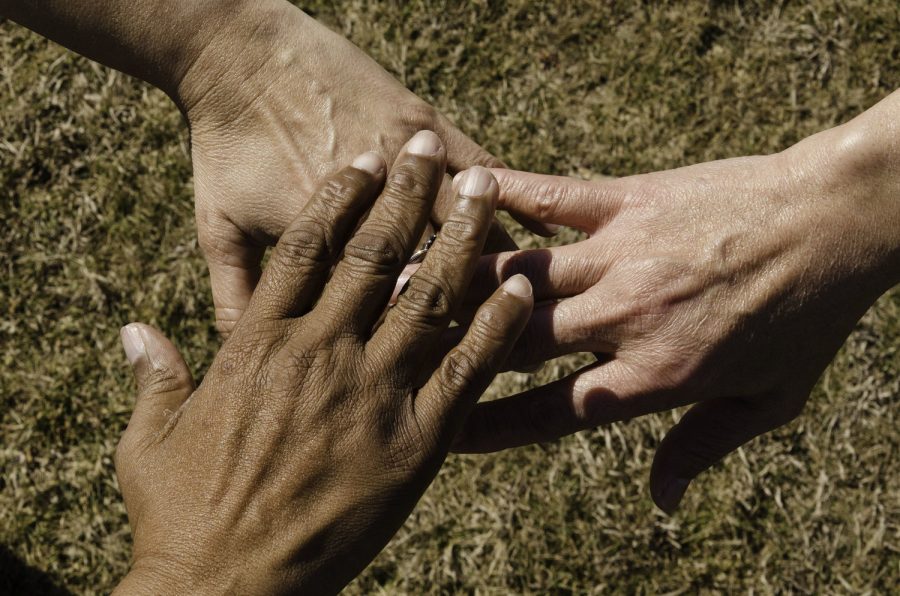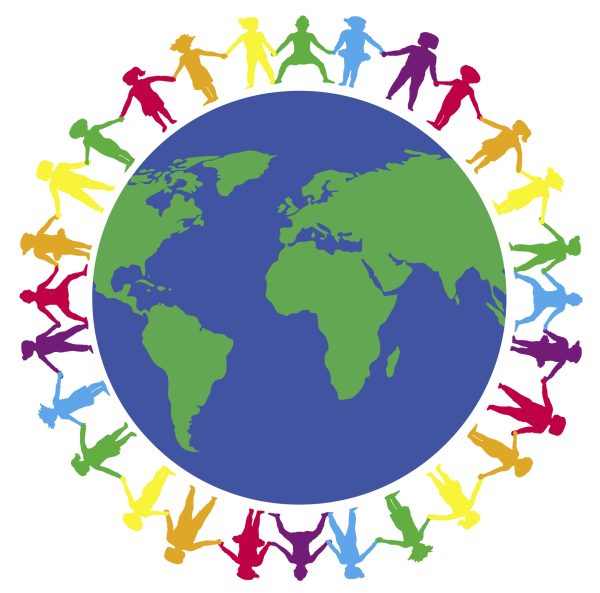Sexist Slang: A Trend That Needs To Go
People have used language to degrade women for centuries. With the rise of social media and feminist movements, is anything changing?
“Go back to the kitchen.”
“Make me a sandwich.”
“Stop acting like a girl.”
Women are often subject to these comments, which imply that they are not good for anything except housekeeping. This has been a common trend for centuries, but a why hasn’t it ended?
With more women in the workplace, especially in what were previously male-dominated fields, many people assume that sexism has disappeared.
However, women still receive hateful comments, and men often have preconceived notions that a woman cannot be as talented, intelligent, or hard-working as they are.
“I still get tweets to go back in the kitchen,” Tina Cervasio, a sports reporter for Fox’s New York affiliate, told The Conversation. “They’re worried about [the] color of [your] hair and how a woman looks.… If I was as fat and bald as [some male sportscasters], I would not have that job.”
In addition to being told to “go back to the kitchen,” women are often described in sexist terms.
One of the more popular terms is “dishwasher.” This slang term originates from the idea that women are only good for housekeeping chores.
According to Urban Dictionary, a dishwasher is a “woman. i.e.- girlfriend, wife, sister, or mother.”
The example sentence used to describe this term says, “The dishwasher was broken so I slapped her and told her to get back to work.”
In response to being called “dishwashers,” some women have started referring to men as “wallets.”
According to Urban Dictionary, a wallet is “a man. Used in response to some men referring to women as “dishwashers”, etc. Based on the joke that a man’s only purpose is his money.”
Using sexist and degrading terms like dishwasher and wallet are really just subtle ways of bullying and trying to gain authority over someone.
— Josie Jenkins
“Using sexist and degrading terms like ‘dishwasher’ and ‘wallet’ are really just subtle ways of bullying and trying to gain authority over someone,” Josie Jenkins, a rising sophomore at Dunbar, said. “Boys have recently started to be called ‘wallets’ in an attempt to bring them to the understanding of how offensive and degrading it is to be objectified.”
Many of these terms are being used as a “joke” on social media and in teenage conversations.
When teenagers use these terms and other sexist phrases, it is often hard to tell if they know how degrading their words can be.
“In terms of language, this might include covering and minimizing sexist or homophobic epithets by claiming they are just a joke, basically meaningless, or just ‘locker room’ talk that everybody does from time to time,” Dr. Edward Morris, a professor of sociology at the University of Kentucky, said.
Often, teens will use the excuse that their sexism is “just a joke” and that the woman needs to “chill out.” Some women feel that this excuse is not acceptable because of the bias behind the words.
“I think deep down if you look at the root of their ‘jokes,’ you can find underlying hate and bad intent,” Jenkins said. “But of course, when you call someone out for a sexist joke, they’ll tell you to calm down or that they were kidding. I don’t think you should joke about things like that.”
These sexist slang terms are mostly used among teenagers, so social media has played a large role in their spread.
“I think social media has allowed sexism to become more covert. The sense of anonymity, distance, and new norms of electronic space mean that sexism can often be expressed with fewer repercussions than in face-to-face social settings. Electronic space also allows for the reinforcement of misogyny and other forms of radical anger through the development of like-minded echo chambers,” Dr. Morris said. “[Sexism] has perhaps increased online but decreased offline.”
The sense of anonymity, distance, and new norms of electronic space mean that sexism can often be expressed with fewer repercussions than in face-to-face social settings.
— Dr. Edward Morris
Teenagers like Jenkins that regularly use social media feel the same way, saying that “social media is one of the most popular places for sexist terms and sexist slang to be used.”
Although social media may have increased sexism, it has also helped to spread awareness of sexism among many teenagers.
“If you know how to avoid and look past the bad stuff [on social media], you can find people that are trying to help,” Jenkins said.
Even though social media has created some of these sexist slang terms, it has also assisted in raising awareness in the form of various movements.
“Ironically, however, social media also has positive effects of raising awareness of sexism, such as with the #MeToo movement,” Dr. Morris said.
Tarana Burke created the MeToo movement in 2006 to help survivors of sexual misconduct share their stories. The hashtag #MeToo arose in 2017 after many allegations of sexual misconduct came out against Hollywood director Harvey Weinstein.
The Time’s Up Movement started in 2018 as a response to the Weinstein effect. The movement was established as a nonprofit to help fund legal action for survivors of sexual harassment and assault. As of December 2018, they had raised around 22 million dollars for legal action.
These movements have had the help of social media to increase their national presence and help women in need.
Social media has also helped spread awareness to many petitions against sexism, including one that is helping to omit sexist slang from the Oxford English Dictionary.
According to CNN, “Tens of thousands of people have signed a petition calling on publisher Oxford University Press (OUP) to remove ‘sexist’ terms for women.”
The petition was started by Maria Beatrice Giovanard, a women’s rights advocate and part of the East London Fawcett Society, which campaigns for gender equality. It was shared on Change.org, and it says that words such as wench, petticoat, bird, and filly “are the words which the Oxford’s English Dictionary online tells us means the same as ‘woman’.”
Many are upset because these words have become more widespread over the years as Google and Apple have been able to license the use of the Oxford Dictionary online, which has helped it be one of the most read dictionaries, according to the BBC.
Many of the sexist definitions of these words do not actually appear in the Oxford Dictionary, but they do appear in many of the online forms of the dictionary, such as the online dictionary Lexico.
An OxfordLanguages blog post was written in response to the petition. The author, Katherine Connor Martin, wrote that “if there is evidence of an offensive or derogatory word or meaning being widely used in English, it will not be excluded from the dictionary solely on the grounds that it is offensive or derogatory.”
…I can guarantee that someone you know or someone you love has been hurt or offended by something sexist.
— Josie Jenkins
Through these petitions and other movements, many teenagers are trying to combat sexism.
“People who are unaffected by sexism should still support the fight against it, because no matter who you are, I can guarantee that someone you know or someone you love has been hurt or offended by something sexist,” Jenkins said.
Many of the women who speak out against sexism describe themselves as feminists. These women fight for equal treatment for women, especially women of color.
“Feminism and the fight against sexism aren’t just for women, which is something a lot of people think,” Jenkins added. “Feminism is equality for everyone.”

Hi! I’m Ella Williams, a senior at Dunbar and one of the Editors-In-Chief of PLD Lamplighter. I focus on our weekly broadcast, WPLD. I have been in this...

Hi! I’m Nimi, I’m a senior and this is my third year in Lamplighter. This year, I am one of four Editors in Chief for the program. I spent my first...























Ai lani • Jul 1, 2020 at 6:52 AM
Actually the term wallet came before dishwasher